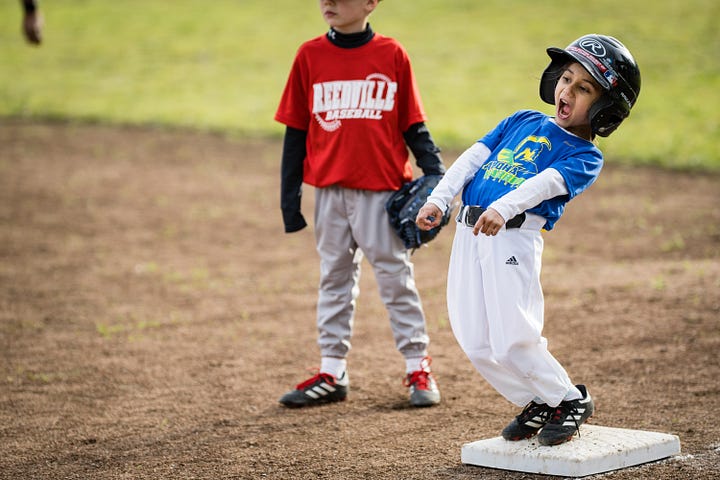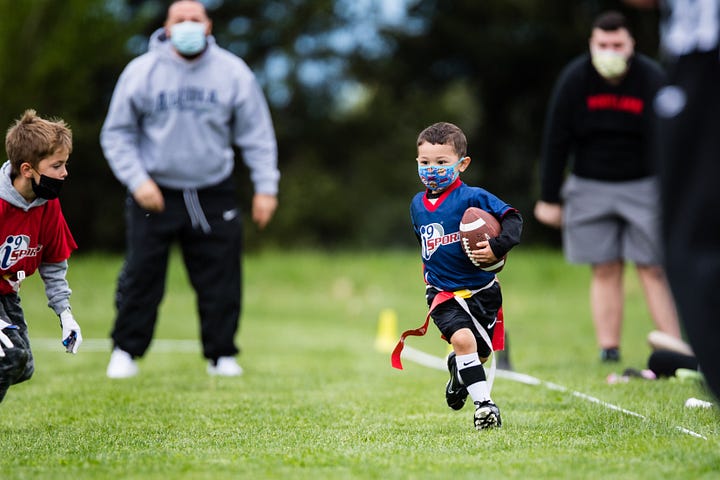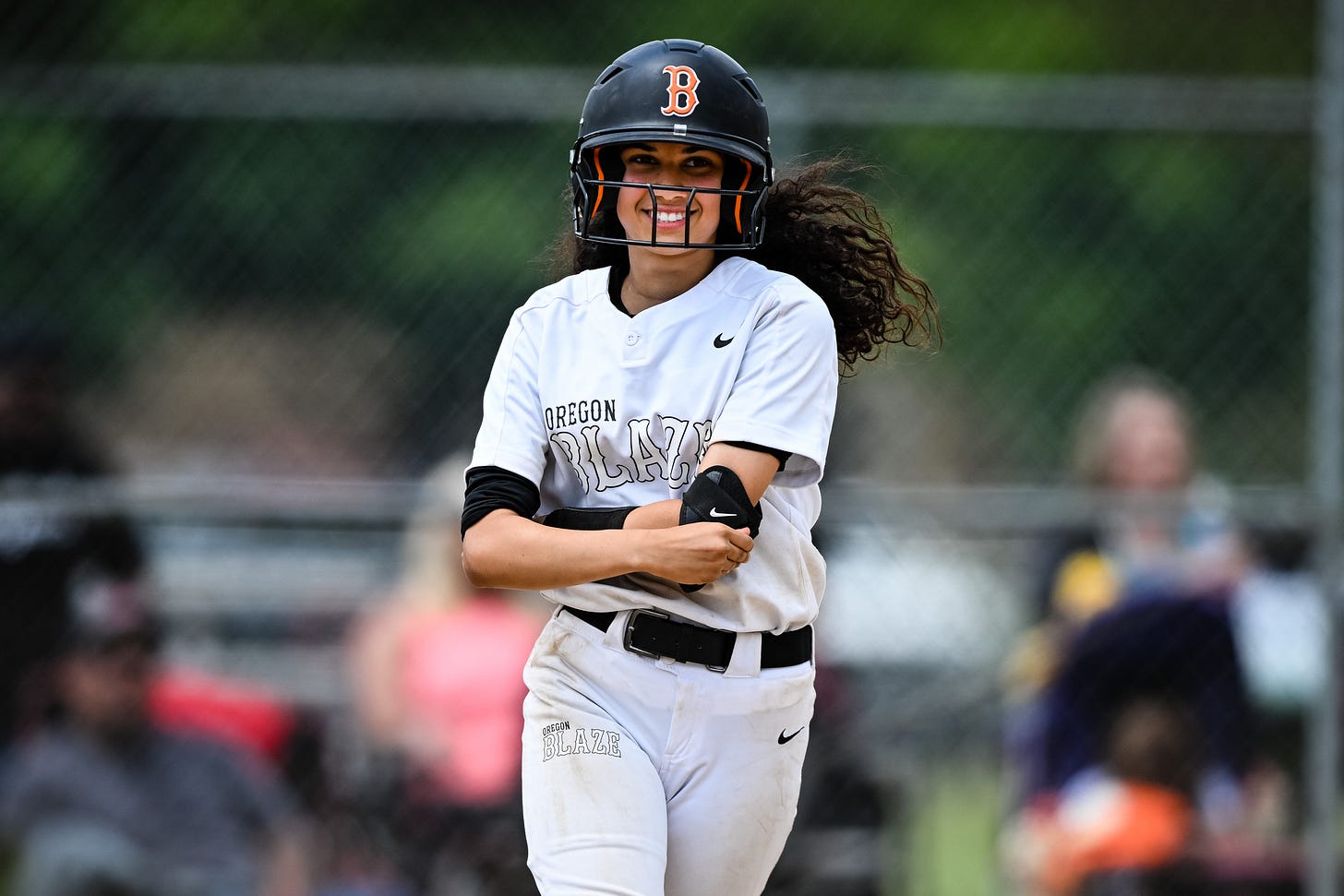Canzano: Note to youth sports parents -- CALM DOWN
Are parents ruining youth sports?
I received an email this week from a concerned citizen who believes there is an unchecked menace running wild in our society.
Subject of the email: “Are parents ruining youth sports?”
The latest episode of the ongoing drama brings us to a sixth-grade girls’ basketball team in a prominent suburb of Portland. The team is coached by a woman who was not pleased with the team’s defensive effort on Saturday. The coach called it a “lazy” effort and also didn’t like the poor body language of the players sitting on the bench during the game.
A few of the parents didn’t appreciate their children’s output being described as “lazy.” Also, they were not happy that the girls on the bench were asked to smile and appear upbeat. I mean, after all, they weren’t even playing. The parents complained to the league and threatened to pull their children from the team.
Monday, the coaching staff was asked to step down.
A parent who was satisfied with the coaching wrote an email in defense: “Not only were they fair and focused on developing all the players they also seemed to always go the extra step to make things fun for the girls.”
This reminds me that it’s time for my annual public-service message about youth sports parenting. There are some bad actors out there. Their actions have forced coaches into retirement and caused a national shortage of umpires, referees, and officials. Also, they’re spoiling it for kids.
The officials are tired of being yelled at, berated, followed to the parking lot, and harassed on social media in exchange for low wages. One fed-up ref in the youth basketball circuit in Oregon reported that he works 11 games on a typical weekend. He’s decided this is his final season.
His parting thought: “I'm sick of the parents, they’re awful.”
You love your children. I love mine. But I’ve seen otherwise rational, reasonable people lose their marbles at sports events. And I’m convinced we’re not helping kids in the process.
I once observed a reputable local dentist scream at a teenage umpire over a blown call. I’ve seen a mother “game” the system, lobbying league officials and obtaining a waiver so her 15-year-old daughter could dominate and play one final season of 14-under volleyball. And I’ve watched parents call meetings, undermine coaches, and threaten to pull their kids off teams if the coach doesn’t give them more playing time.
Less than one percent of draft-eligible college football players will be selected in the next NFL Draft. Even at the highest level of the professional feeder system, the odds are slim. If you back that out to the high school level and include youth sports, your child essentially has a better chance of being struck by lightning in the parking lot than becoming a professional athlete.
Chase the athletic scholarship if you’d like. Pay for the private lessons, hire a nutritional expert, invest in strength training to keep up, pay $5,000 to join the top club team, lobby the coach for playing time, and in the end, understand that you’re completely missing the point.
Studies show that kids who participate in sports get better grades, have fewer behavior problems, are less likely to be involved in teen pregnancy, and are healthier in general. Those are huge positives. And the two unsung heroes of the youth sports experience are “confidence” and “perseverance.”
Those two benefits stay with a person for life. And they’re not derived from a parent hovering nearby, shouting at the officials, manipulating the coach, and working hard to insulate their child from anything resembling a poor outcome.
Life is hard. Bad things happen. People get sick, lose jobs, suffer failed relationships, and catch tough breaks. The first time a person faces an obstacle shouldn’t come at age 21 or 28 or 35. If you truly want to prepare your child for life, support your kid, talk with them, give encouragement, and then let them gain the mettle that comes from working through a tough situation without you fixing it for them.


Years ago, I had a conversation with Sister Krista von Borstel, the nun who runs the local CYO sports scene. Her coaches are volunteers. The officials are typically teenagers. Spectators are reminded before every event to stay positive and reminded that they’re in the house for the enjoyment of their children, not themselves.
We get hyperfocused on championships, but CYO is a safe place for kids to fail.
Think about the value of that.
I had a fascinating talk this week with former Kansas City Chiefs receiver JJ Birden. He weighed 133 pounds as a senior at Lakeridge High School. He received no scholarship offers and begged coach Rich Brooks to let him walk-on at Oregon.
Birden’s college career at Oregon was forgettable. He sat on the bench for his first two seasons, then played a little as a junior and senior. He caught only 45 passes in his four seasons and scored one touchdown.
He went to the NFL Combine. His 40-yard-dash time (4.45 seconds) caught the attention of the Cleveland Browns, who took a flyer on him with their eighth-round draft pick. In the next two years, Birden was cut twice by two different teams.
He kept working and signed with the Chiefs before the 1990 season — and again, got cut in training camp. He could have quit and sold insurance and complained about not getting a fair shake. He could have decided the universe was trying to tell him football wasn’t his thing. But Birden refused to throw in the keys. And the Chiefs called him back a couple of weeks later and re-signed him.
Then, Birden sat on the bench for almost two full seasons in Kansas City. In the final game of the second season, he was thrown into the game by coach Marty Schottenheimer. The coach had been impressed with Birden’s willingness to work hard.
Said Birden: “Most wide receivers come in and learn one position — the ‘X’ or the ‘Z.’ I came in that season and learned ‘X’ and ‘H’ and ‘Z’ and ‘Y.’ I thought the more chances I have to be on the field, the more opportunities I have to help them see me.”
In the final game of that season, Birden caught eight passes for 188 yards and two touchdowns. The following year, Kansas City made him a starter. Birden played nine seasons in the NFL. He’s now working as a motivational speaker.
What in the world happened?
Birden didn’t just learn to be resilient and opportunistic at age 27. He picked it up much earlier, in childhood. He and two siblings were raised by a single mother in Northeast Portland. His mom dropped out of high school when she was a junior. She worked as a welder.
Said Birden: “I’d watch her come home in the big boots and big jacket and just struggle. But she’d come home and say ‘Hey, you do what it takes.’”
Birden didn’t play sports in middle school. He rode the bus every day to Lake Oswego to go to school. He didn’t play in high school as a freshman or sophomore, either. He found track through a summer camp before his junior year, then later, fell into football.
No parents screaming at officials.
No mom demanding more playing time.
JJ Birden — the kid who was told he was “too small” and “not good enough” — simply saw his mother demonstrate a ‘can-do’ work ethic and then developed it himself. It’s worth noting here that our kids are watching us and learning from us. In that, Birden’s mother gave him a gift.
As Warren Buffett said once: “More kids are ruined by the behavior of their parents than the size of their inheritance.”
Parents have lost their minds. Just ask anyone who has coached a youth sports team for an extended stretch. I reached out to two long-time, prominent coaches on Thursday to ask them how parents have changed and what the role of a youth sports parent should be.
One, a long-time basketball coach, said: “Parents have gotten way too involved after the pandemic in ways that I don’t think is healthy. The level of anxiety was already up on the kids, and parents have added to it.”
The other, a club volleyball coach, said that helicopter parents have always existed. So what’s shifted? The coach believes that the footing of youth coaches has weakened and that younger, less-experienced coaches are particularly susceptible.
The coach added: “Years ago, we had more influence to push back and keep parents at bay. Today, I think parents are coming at coaches stronger, and younger coaches are unable to push back like we did years ago. It’s almost like parents identify young coaches and attack. I have to go be like a bouncer to protect a young coach and fend off the wacky parents.”
I’ve heard parents explain that they feel increasing pressure to contend with other families who are paying for private lessons, encouraging their kids to specialize in one sport, and buying the most expensive equipment. I’ve also had several college coaches tell me that they can walk into a gym, watch 12-year-old kids play for a few minutes, and predict with reasonable certainty which of the very few will be in line for Division I scholarships at age 17 or 18.
Along those lines, it’s worth noting that the American Academy of Pediatrics recently published a report pointing out that 70 percent of kids drop out of organized activities by age 13. The culprits: overuse, overtraining, and burnout.
On Thursday, I spoke with Oregon men’s basketball coach Dana Altman. He said he stunk as a youth basketball player. He was a walk-on at his community college. He will one day be inducted into the Hall of Fame as a coach. Altman said he fell in love with the game that would become his livelihood as a child.
“We played all night in the summer, sweating our tails off,” Altman told me. “And in the winter the ball would freeze and we had one on the radiator warming up so we could keep playing.”
There were no parents around.
“We just loved the game so much,” Altman said.
Here’s my plea to youth sports parents: CALM DOWN!
Consider whether you’re part of the problem or the solution. Ask yourself whether running off a volunteer coach, berating officials, and burning your kid out are the memories you aim to create.
I realize I am arguing for a dose of sanity in the same week that a college football player bought a $273,000 Lamborghini. But I’m concerned about the pressure we’re placing on our kids. It’s not wise. Championships are cool, but let’s not forget the value of resilience, confidnce, skill-building, and joy.
It’s like that fired youth basketball coach said about the players on the bench: More smiles, please.
I appreciate all who read, subscribe, and share this independent endeavor with friends. If you’re not already a “paid” subscriber, please consider a subscription so you don’t miss a thing:
Consider a gift subscription for a friend or family member:




Reminds me of the story of the youth basketball coach who put all 12 of his kids on the court to start the game. The refs told him to get it down to 5. He quietly refused. The refs insisted but he held his ground. Finally, he got a technical. He turned to the parents and said, "See, I told you they couldn't all start."
As a youth sports coach for the last 8 years and an elementary teacher, I thank you for putting into words what many of us are facing and feeling.